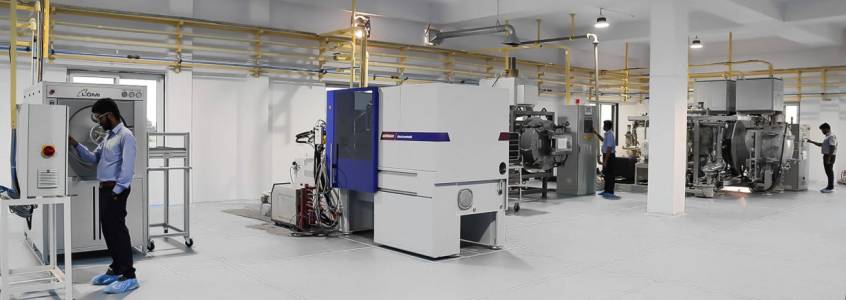Description
Metal Injection Molding (MIM): Precision Manufacturing for Complex Parts
Metal Injection Molding (MIM) is a sophisticated near-net-shape manufacturing process ideal for producing intricate, high-precision metal components with exceptional detail. This process offers a compelling alternative to traditional machining and casting methods, particularly for small, complex parts requiring high volume production.
How it Works:
MIM begins with the creation of a fine metal powder mixed with a binder. This homogenous mixture is then injected into a precision mold under high pressure, much like plastic injection molding. After the part cools and solidifies, the binder is removed through a series of debinding processes (typically thermal debinding or solvent debinding). Finally, the part is sintered in a high-temperature furnace, resulting in a dense, strong metal component.
Advantages of MIM:
- High Precision and Complexity: MIM excels in producing intricate geometries and fine details, often impossible with other manufacturing methods. Undercuts, thin walls, and complex internal features are easily achievable.
- Near-Net-Shape Capabilities: MIM produces parts very close to their final dimensions, minimizing the need for secondary machining and reducing material waste. This significantly reduces manufacturing time and cost.
- High Volume Production: MIM is well-suited for mass production, offering cost-effective solutions for large orders.
- Material Versatility: A wide range of metal alloys can be used in MIM, including stainless steel, tool steel, nickel alloys, copper alloys, and others. This allows for tailoring material properties to specific application needs.
- Excellent Dimensional Accuracy and Surface Finish: MIM consistently delivers parts with tight tolerances and smooth surface finishes, reducing the need for extensive post-processing.
- Cost-Effective for Small, Complex Parts: While initial tooling costs can be significant, the cost-effectiveness of MIM becomes evident when producing large quantities of small, complex parts.
Applications:
MIM components find application across a variety of industries, including:
- Medical Devices: Implants, surgical instruments, and micro-components.
- Aerospace: Engine components, fasteners, and other critical parts requiring high strength and precision.
- Automotive: Fuel injection components, sensors, and other small, intricate parts.
- Consumer Electronics: Precision components for smartphones, laptops, and other devices.
- Defense and Military: Weapons components, ammunition, and other high-performance parts.
Limitations of MIM:
- Tooling Costs: The initial investment in tooling can be substantial.
- Part Size Limitations: While MIM can produce small parts with great precision, there are limitations to the maximum size of parts that can be manufactured.
- Material Properties: Certain material properties might be slightly different compared to traditionally manufactured parts.
Conclusion:
Metal Injection Molding is a powerful manufacturing process capable of producing high-quality, complex metal parts with exceptional precision and repeatability. If you need to manufacture small, intricate metal components in high volumes, MIM is a technology worth exploring. Contact us today to discuss your specific project requirements and discover how MIM can benefit your business.
